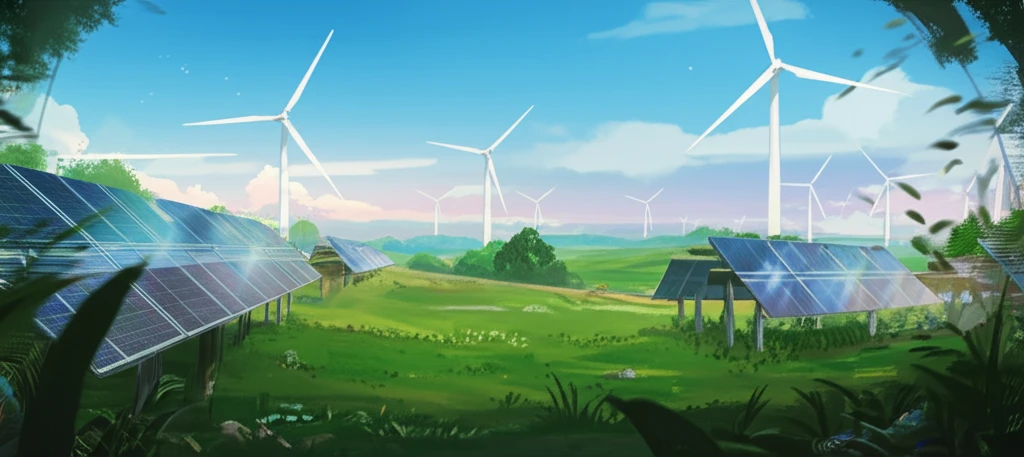
Power Up: How Renewable Electricity Can Save Our World
"Uncover how switching to renewable electricity can help us avoid ecological destruction and move towards a more sustainable future."
We're at a critical moment in Earth's history, living in what scientists call the Anthropocene—an era where human actions significantly impact the planet. Our energy choices, especially how we power our societies, play a huge role in this. For a long time, burning fossil fuels has been the go-to method, but it's become clear that this path is leading to environmental crises. Think climate change, pollution, and shrinking natural resources.
But there's good news! The rise of renewable electricity offers a real chance to change course. Unlike burning fossil fuels, generating electricity from sources like solar, wind, and water can be much cleaner and more sustainable. It's not just about swapping one energy source for another; it's about creating a whole new way of living that's in balance with the environment.
This article will dive into how our energy systems have evolved, the problems caused by relying on fossil fuels, and, most importantly, how renewable electricity can help us build a more secure and sustainable future. It's time to explore how we can power up our world in a way that protects both people and the planet.
Why Is Renewable Electricity the Key to a Sustainable Future?

Our journey with energy has evolved from relying on basic resources like plants and animals to harnessing the power of fossil fuels. This shift allowed us to build complex societies and improve our lives, but it also created significant problems. Burning fossil fuels releases harmful emissions that pollute the air and contribute to climate change. Plus, these resources are limited, leading to concerns about energy security and geopolitical tensions.
- Reduces Pollution: Renewable sources produce little to no air and water pollution.
- Combats Climate Change: Switching to renewables significantly lowers greenhouse gas emissions.
- Ensures Energy Security: Renewable sources are abundant and locally available, reducing dependence on foreign supplies.
- Creates Jobs: The renewable energy sector is growing rapidly, creating new employment opportunities.
- Promotes Sustainability: Renewable electricity helps us meet our energy needs without compromising the ability of future generations to meet theirs.
What Can You Do to Support the Transition to Renewable Electricity?
The transition to renewable electricity requires action at all levels. Governments need to implement supportive policies, businesses need to invest in renewable energy projects, and individuals need to make conscious choices to reduce their carbon footprint. By working together, we can create a future powered by clean, sustainable energy for all.
